Website Temporary Closed
Nintendo Gameboy Advance
The Game Boy Advance (ゲームボーイアドバンス, Gēmu Bōi Adobansu, often shortened to GBA) is a 32-bit handheld video game console developed, manufactured and marketed by Nintendo. It is the successor to the popular Game Boy Color. It was released in Japan on March 21, 2001; in North America on June 11, 2001; in Australia on June 22, 2001, in Europe on June 22, 2001; and in the People's Republic of China on June 8, 2004 (excluding Hong Kong).
In 1996, magazines including issues 53 and 54 of Total! and the July 1996 issue of Game Informer featured reports of a new Game Boy, codenamed Project Atlantis. Although the expected release date of "early 1997" would make this machine seem to be the Game Boy Color, it was described as having "a 32-bit RISC processor" and "allowing similar to SNES standard games-playing to be played in the palm of your hand"—a description that more closely matches the Game Boy Advance.
[collapse collapsed title=read more...]
On December 1, 2006, Nintendo of America released launch-to-date information indicating that the Game Boy Advance series had sold 33.63 million units in the United States. As of September 30, 2007, the Game Boy Advance series has sold 80.48 million units worldwide, of which 42.82 million are Game Boy Advance SP units.
The Game Boy Advance has become the modern flagship of sprite-based games. With hardware superior to the Super NES it has proven that sprite-based technology could improve and live side by side with the 3D games of today's consoles. The Game Boy Advance not only has one's typical platformers, but also a huge collection of SNES-style RPGs. It has also become a popular system for old-school gamers due to the increasing amount of games ported from various 8-bit and 16-bit systems of the previous era.
Through the use of flash cartridges and emulators the Game Boy Advance can even play NES and TurboGrafx-16 games, as well as AGI-based Sierra On-Line PC adventure games. Backward compatibility for Game Boy and Game Boy Color games is provided by an 8.4 MHz Z80 co-processor, while a link port at the top of the unit allows it to be connected to other devices via use of a Nintendo Game Link cable or GameCube cable.
Many people have developed their own software to run on the Game Boy Advance. This is typically tested using emulators, and later written to flash cartridges to run on real consoles. Most such developers use a version of the GNU Compiler Collection (gcc) and program in either C or C++, though recently some developers have started using Free Pascal.
In early 2003, Nintendo upgraded the Gameboy Advance to the Gameboy Advance SPgiving it an internal front-light that can be turned on or off, a rechargeable lithium ion battery, as well as a folding case approximately half the original size. It was designed to address some common complaints with the original Game Boy Advance which was criticized for being very uncomfortable. The Game Boy Advance SP also came with a new and much brighter LCD screen for improved playability.
Around the same time as the release of the Game Boy Micro, Nintendo released a new backlit version of the SP in North America (commonly referred to as the "GBA SP+"). The switch that controls the light now toggles between "normal" (which itself is already brighter than the original Game Boy Advance SP's screen), and "bright," an intense brightness level similar to an LCD television set.
In September 2005, Nintendo released a second redesign of the Game Boy Advance. This model, dubbed the Game Boy Micro, is similar in style to the original Game Boy Advance's horizontal orientation, but is much smaller and sleeker. The Game Boy Micro also allows the user an ability to switch between several colored faceplates to allow customization, a feature which Nintendo advertised heavily around the Game Boy Micro's launch. Nintendo also hoped that this "fashion" feature will help target audiences outside of typical video game players, much like its new Wii. Unlike the previous Game Boy Advance models, Game Boy Micro is unable to support Game Boy and Game Boy Color titles.
Nintendo's competitors in the handheld market were the Neo Geo Pocket Color, Bandai Swan Crystal, Game Park 32, Tapwave Zodiac and the Nokia N-Gage. Despite the competitors' best efforts, Nintendo maintained its majority market share with the Game Boy Advance.
[/collapse]
- HOME


- PRODUCTS

- 3DO
- Amiga CD32
- Amstrad GX4000
- Atari 2600
- Atari 7800
- Atari Jaguar
- Atari Jaguar CD
- Atari Lynx
- Bandai Wonderswan
- Coleco
- Colecovision
- Famicom
- Famicom Disk System
- Grandstand
- JAMMA
- Mattel Intellivision
- MB
- Microsoft Xbox
- MSX
- Neo Geo AES
- Neo Geo CD
- Neo Geo MVS
- Neo Geo Pocket
- Nintendo 64
- Nintendo Game and Watch
- Nintendo Gameboy
- Nintendo Gameboy Advance
- Nintendo Gameboy Colour
- Nintendo Gamecube
- Nintendo NES
- Nintendo Virtual Boy
- PC Engine
- PC Engine CD
- Philips CDI
- Sega 32X
- Sega Dreamcast
- Sega Game Gear
- Sega Genesis
- Sega Master System
- Sega Mega CD
- Sega Megadrive
- Sega Nomad
- Sega Saturn
- Sony Playstation
- Sony Playstation 2
- Super Famicom
- Super Nintendo
- Texas Instruments
- Tiger Game Com
- Tomy
- Vectrex
- Japanese Video Game Imports
-

- MODIFICATIONS

- Switchless Modification
- Modification Sega 32X
- Modification Sega Dreamcast
- Modification Sega Megadrive
- Modification Neo Geo AES
- Modification Neo Geo CD
- Modification Nintendo NES
- Modification Sega Master System
- Modification Sega Mega-CD
- Modification Sega Nomad
- Modification Sega Saturn
- Modification Super Nintendo
-

- TECHNICAL INFO


- NEWS


- ABOUT US


- MEMBERS


- CONTACT US


Log on
x
Just In!
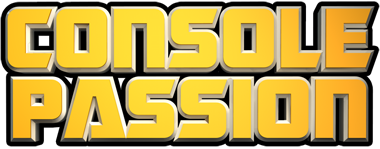



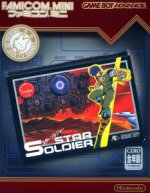
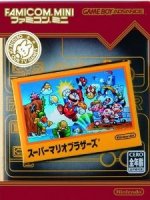
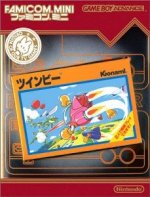
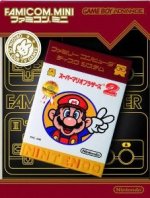
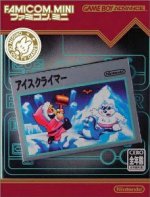
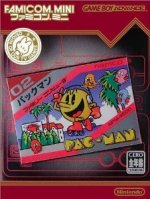


 Save time
Save time